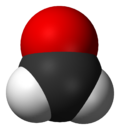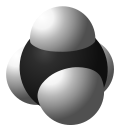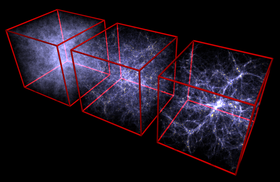Wednesday, August 26, 2009
Wednesday, August 12, 2009
molecule Formulae
Methane - Fart gas CH4 - Carbon Black - Hydrogen White
-------------------------------------------------------------------------------------------------
Methanol CH3OH - What are the colours of the atoms?
__________________________________________________________

formaldehyde - Write the formulae - used to embarm the dead.
______________________________________________________________
Nitrogen is blue - there are 5 whites
Injected in Coligen
Tuesday, August 11, 2009
Bohpal
Saturday, August 1, 2009
Monday, July 6, 2009
Sunday, June 28, 2009
Thursday, June 25, 2009
Sunday, June 21, 2009
Saturday, June 20, 2009
Sunday, June 7, 2009
Homework Register
All homework is to be written in your book and labeled "Homework #1" etc
5. (6/7/9) Complete Mario - Hubble work sheet
4. (Due Mon 29 June) Research and report on "Continental Drift"
5. (6/7/9) Complete Mario - Hubble work sheet
4. (Due Mon 29 June) Research and report on "Continental Drift"
- (Due 12 June) Create a timeline of the History of the Universe with at least 10 entries Visit this site - Produce in your work book
- (Due 12 June) Copy in point form the course outline into your book. Link to course outline
- (Due 15 June) Revision on Atomic structure: Name and describe the three basic particles of an atom (reference link). In the description give the mass, charge and location of each of the three particles. ie Electron : Charge -1, mass is 1/1000 of the atom, location far from the atom. Then draw the shell structure atom for H, He, Li.
- (Due 25 June) Submitted on Moodle: From the Net and School notes - Name explain three things in the Universe

Thursday, June 4, 2009
Tuesday, June 2, 2009
Big Bang and Plate Tectonics Topic Out Line
1. State that on way of finding out about what has happended in the past is to look for evidence
2. explain that there will always be a level of uncertainty in ideas about what happened in the distant past.
3.sort a set of question about the distant past into those that science can attempt to answer and those that science cannot answer.
4. briefly describe the Big Bang model of the beginning of the universe including a description of some evidence which supports this theory and current problems with the theory.
5. give three example of types of electromagnetic radiation which can be used to provide information about the universe
6.choose one type of electromagnetic radiation and describe the type of information it can provide about the rest of the universe
7.describe one difficulty encountered in obtaining information about the universe.
8.describe the current scientific theory which attempts to explain how the galaxies were formed.
9 describe gravity as an attractive force which exists between and two pieces of matter.
10 describe the current theory about the formation of our solar system including a piece of evidence which supports the theory and a current problem with the model.
11. describe gravity as an attractive force which depends on the mass of objects and there distance.
12 describe on way the age of the earth has been estimated in the past
13 describe the feature of the theory of plate tectonic including evidence which support the theory and a current problem with the theory.
explain activity on the earth surface such as volcanic activity, earthquakes and mountain building using the theory of plate tectonics.
15 describe one piece of evidence which suggests that the earth's climate has changed over the history of this planet.
16. describe some of the changes which have occured to the Continent of Australia in the past 4 billion years.
17 give and example of a local rock and stat approximately how old it is.
18 draw a time line representing the history of the universe.
2. explain that there will always be a level of uncertainty in ideas about what happened in the distant past.
3.sort a set of question about the distant past into those that science can attempt to answer and those that science cannot answer.
4. briefly describe the Big Bang model of the beginning of the universe including a description of some evidence which supports this theory and current problems with the theory.
5. give three example of types of electromagnetic radiation which can be used to provide information about the universe
6.choose one type of electromagnetic radiation and describe the type of information it can provide about the rest of the universe
7.describe one difficulty encountered in obtaining information about the universe.
8.describe the current scientific theory which attempts to explain how the galaxies were formed.
9 describe gravity as an attractive force which exists between and two pieces of matter.
10 describe the current theory about the formation of our solar system including a piece of evidence which supports the theory and a current problem with the model.
11. describe gravity as an attractive force which depends on the mass of objects and there distance.
12 describe on way the age of the earth has been estimated in the past
13 describe the feature of the theory of plate tectonic including evidence which support the theory and a current problem with the theory.
explain activity on the earth surface such as volcanic activity, earthquakes and mountain building using the theory of plate tectonics.
15 describe one piece of evidence which suggests that the earth's climate has changed over the history of this planet.
16. describe some of the changes which have occured to the Continent of Australia in the past 4 billion years.
17 give and example of a local rock and stat approximately how old it is.
18 draw a time line representing the history of the universe.
Thursday, April 30, 2009
Homework and Exam
Homework, On moodle
What is the difference between insulators and conductors?
What is electricity?
What is current and Voltage?
What is Resistance?
Due Monday
About Half Yearly
2 Weeks away
1 Hour
12 Multi choice
Extended question
Know what is a Periodic table, Atomic Number, Atoms, Ions, Compound and how they are represented, Where metals, nonmetals, metaloids. Understand group numbering
Be able to draw the 1913 atom with circular shells as taught in NSW School
Know types of neuron, structure and parts and flow of signal - dendrite (hair)
Three parts of brain Medulla - Reptile brain - brain stem
cerebellum - war brain
cerebrum - thinking cap
Understand function of brain parts and endorcine glands (hormone and effect of hormone)
Explain how the nervous system work.
What is the difference between insulators and conductors?
What is electricity?
What is current and Voltage?
What is Resistance?
Due Monday
About Half Yearly
2 Weeks away
1 Hour
12 Multi choice
Extended question
Know what is a Periodic table, Atomic Number, Atoms, Ions, Compound and how they are represented, Where metals, nonmetals, metaloids. Understand group numbering
Be able to draw the 1913 atom with circular shells as taught in NSW School
Know types of neuron, structure and parts and flow of signal - dendrite (hair)
Three parts of brain Medulla - Reptile brain - brain stem
cerebellum - war brain
cerebrum - thinking cap
Understand function of brain parts and endorcine glands (hormone and effect of hormone)
Explain how the nervous system work.
Monday, April 13, 2009
Sunday, April 5, 2009
Monday lesson
use of epipen
http://www.teachertube.com/view_video.php?viewkey=2df517e217d10c200b5f
insulin Pump
http://video.google.com.au/videoplay?docid=2525495069716085286&ei=K2_ZSf2OMI-IwgO0m4nNBg&q=insulin+pump&hl=en&emb=1
Thyroid surgery
http://video.google.com.au/videoplay?docid=7725534469561228361&ei=zG_ZSaijFYqEwgPcvf3KBQ&q=thyroid+iodine&hl=en&emb=1
http://www.teachertube.com/view_video.php?viewkey=2df517e217d10c200b5f
insulin Pump
http://video.google.com.au/videoplay?docid=2525495069716085286&ei=K2_ZSf2OMI-IwgO0m4nNBg&q=insulin+pump&hl=en&emb=1
Thyroid surgery
http://video.google.com.au/videoplay?docid=7725534469561228361&ei=zG_ZSaijFYqEwgPcvf3KBQ&q=thyroid+iodine&hl=en&emb=1
Thursday, April 2, 2009
Wednesday, April 1, 2009
Brain Research and Dissection Lesson
Assessed Task
You will research the brain, dissect it and hand in your complete book for marking.
Question 1. What are the components of the Central Nervous System?
Question 2. What is the most common cell type in the CNS? (Hint Nerves refer to a bundle of these cells, in the brain these cells spread out in all directions.
Question 3. Briefly describe the parts of a Neuron: Dendrite, Cell body, Nucleus, Axon, and Synapse.
Question 4. What is the difference between a Sensory Neuron, and an Interneuron and Motor Neuron.
Question 5 Watch this animation:
http://www.brainviews.com/abFiles/AniEmdev.htm
The red is the thinking brain -Cerebrum
The orange is litterally the war brain - Cerebellum
The yellow is the spinal cord
Describe the growth of the brain in a child, and sketch the location of the parts
Question 6: Visit this site:
http://www.exploratorium.edu/memory/braindissection/index.html
Copy out the details of what you expect to see.
NOTE: Leave plenty of space for addition of more information.
Show your teacher for a midlesson mark
Add more detail after visiting this page.
http://www.hometrainingtools.com/articles/brain-dissection-project.html
Other Links:
Online Cat Dissection http://bio.bd.psu.edu/cat/
Question 7: Open ended research. Look at one of the following topics
Brain Disease
Stroke
Short term memory loss
Write a glossary in preparation for your dissection.
You will research the brain, dissect it and hand in your complete book for marking.
Question 1. What are the components of the Central Nervous System?
Question 2. What is the most common cell type in the CNS? (Hint Nerves refer to a bundle of these cells, in the brain these cells spread out in all directions.
Question 3. Briefly describe the parts of a Neuron: Dendrite, Cell body, Nucleus, Axon, and Synapse.
Question 4. What is the difference between a Sensory Neuron, and an Interneuron and Motor Neuron.
Question 5 Watch this animation:
http://www.brainviews.com/abFiles/AniEmdev.htm
The red is the thinking brain -Cerebrum
The orange is litterally the war brain - Cerebellum
The yellow is the spinal cord
Describe the growth of the brain in a child, and sketch the location of the parts
Question 6: Visit this site:
http://www.exploratorium.edu/memory/braindissection/index.html
Copy out the details of what you expect to see.
NOTE: Leave plenty of space for addition of more information.
Show your teacher for a midlesson mark
Add more detail after visiting this page.
http://www.hometrainingtools.com/articles/brain-dissection-project.html
Other Links:
Online Cat Dissection http://bio.bd.psu.edu/cat/
Question 7: Open ended research. Look at one of the following topics
Brain Disease
Stroke
Short term memory loss
Write a glossary in preparation for your dissection.
Sunday, March 22, 2009
Hormones
You will need to load chime on your computer to play with virtual insulin.
You will see by right click and putting it in "Scuplt Mode" that the molecule is a giant key.
If you press one atom it causes the others to change shape.
This article shows party drugs.
Wednesday, March 4, 2009
Monday, February 23, 2009
Wednesday, February 18, 2009
Monday, February 16, 2009
Distributions
Look at these height distributions. An interested student can learn how to input data by putting in information on this site.
Tuesday, February 10, 2009
Monday, February 9, 2009
Homework
Spelling Test
General knowledge Test on the number of Groups and Periods of the Periodic Table. You will be asked to sketch the periodic table, an select which group of elements have similar properties or belong to the same group
Download the an interactive table directly with this link
This is an interesting 3D periodic table
Saturday, February 7, 2009
Thursday, February 5, 2009
Groups in the Periodic Tables
In this computer lesson your Photos where placed on the periodic table and you worked in groups linked with the column or family of elements with which you were placed.
Your powerpoints will be made into an interactive web page posted on the school intranet.
Marks can only be awarded to powerpoint saved in your homedrive under the name "Elements".
Fridays lesson, we review some groups and look at the adventure stories of some famous elements.
Neils Bohr outwitted the Nazis by turning his Gold Nobel Prize into atoms, and then back into a lump of gold again.
We will look at how some 760 British service men perished in the Falklands war when their Al boat literally went up in a puff of smoke.
We will make Chlorine gas that was used in the WW1 Trenches.
Your powerpoints will be made into an interactive web page posted on the school intranet.
Marks can only be awarded to powerpoint saved in your homedrive under the name "Elements".
Fridays lesson, we review some groups and look at the adventure stories of some famous elements.
Neils Bohr outwitted the Nazis by turning his Gold Nobel Prize into atoms, and then back into a lump of gold again.
We will look at how some 760 British service men perished in the Falklands war when their Al boat literally went up in a puff of smoke.
We will make Chlorine gas that was used in the WW1 Trenches.
Monday, February 2, 2009
Atom Songs
MNR machines see atoms inside you. You are made completely from 80 elements.
These are the Lyrics to "I love my magnet". Download the song to your ipod. ATP is a phosphorous molecule which powers the billions of tiny feet on every muscle fibre in your body.
The next song by this scientist talks about his favourite atom.
This is a good video of an AFM. Microscope film of DNA. DNA is a string of atoms that contains the "computer code" to build you. Now we can see individual atoms scientist are now seeing how germs move.
These are the Lyrics to "I love my magnet". Download the song to your ipod. ATP is a phosphorous molecule which powers the billions of tiny feet on every muscle fibre in your body.
The next song by this scientist talks about his favourite atom.
This is a good video of an AFM. Microscope film of DNA. DNA is a string of atoms that contains the "computer code" to build you. Now we can see individual atoms scientist are now seeing how germs move.
Sunday, February 1, 2009
Friday, January 30, 2009
First Lesson
Brainiac Video of "Group One" of the PERIODIC TABLE was shown.
Use this table to work out your homework element. (Student to select the amount of information given)
DA Fr
EA Tc
RB Au
CB Ar
TC Ph
JC K
LC Absent
AD O
WD Absent
DD Cs
JE Absent
BF Li
MF Rb
AK Absent
JK He
BK Ti
YL Na
HL Ag
AL Pu
TM Hg
AN Absent
JO Si
JP I
AS Ca
DS At
NW Xe
AW Uup
WX Sg
LL Ir
The interactive Periodic Table can be found on www.delicious.com/drhill/periodic-table
Use this table to work out your homework element. (Student to select the amount of information given)
DA Fr
EA Tc
RB Au
CB Ar
TC Ph
JC K
LC Absent
AD O
WD Absent
DD Cs
JE Absent
BF Li
MF Rb
AK Absent
JK He
BK Ti
YL Na
HL Ag
AL Pu
TM Hg
AN Absent
JO Si
JP I
AS Ca
DS At
NW Xe
AW Uup
WX Sg
LL Ir
The interactive Periodic Table can be found on www.delicious.com/drhill/periodic-table
Subscribe to:
Posts (Atom)
Diary
Translator
Search
Search All DrHill
Blog Archive
About Me

- drhill
- I come from a Science family: My father Geoffrey Hill was Australia's first computer programmer on CSIRAC the fourth computer in the world. He is credited with invention of Computer music and the development of “Interprogram” a language before Basic. My PhD is in Atomic and Molecular Physics. I have researched the activated oxygen layer above the ozone layer, and 'Assigned' the world's smallest molecule. At the University of Toronto I researched high power UV lasers. I have specialized in automation in fibre optics. This developed into research in Machine Intellect and Robots. I have enjoyed work as an Explainer with Questacon and my time as a part-time soldier. I currently teach High School Science at Epping Boys’ High.




